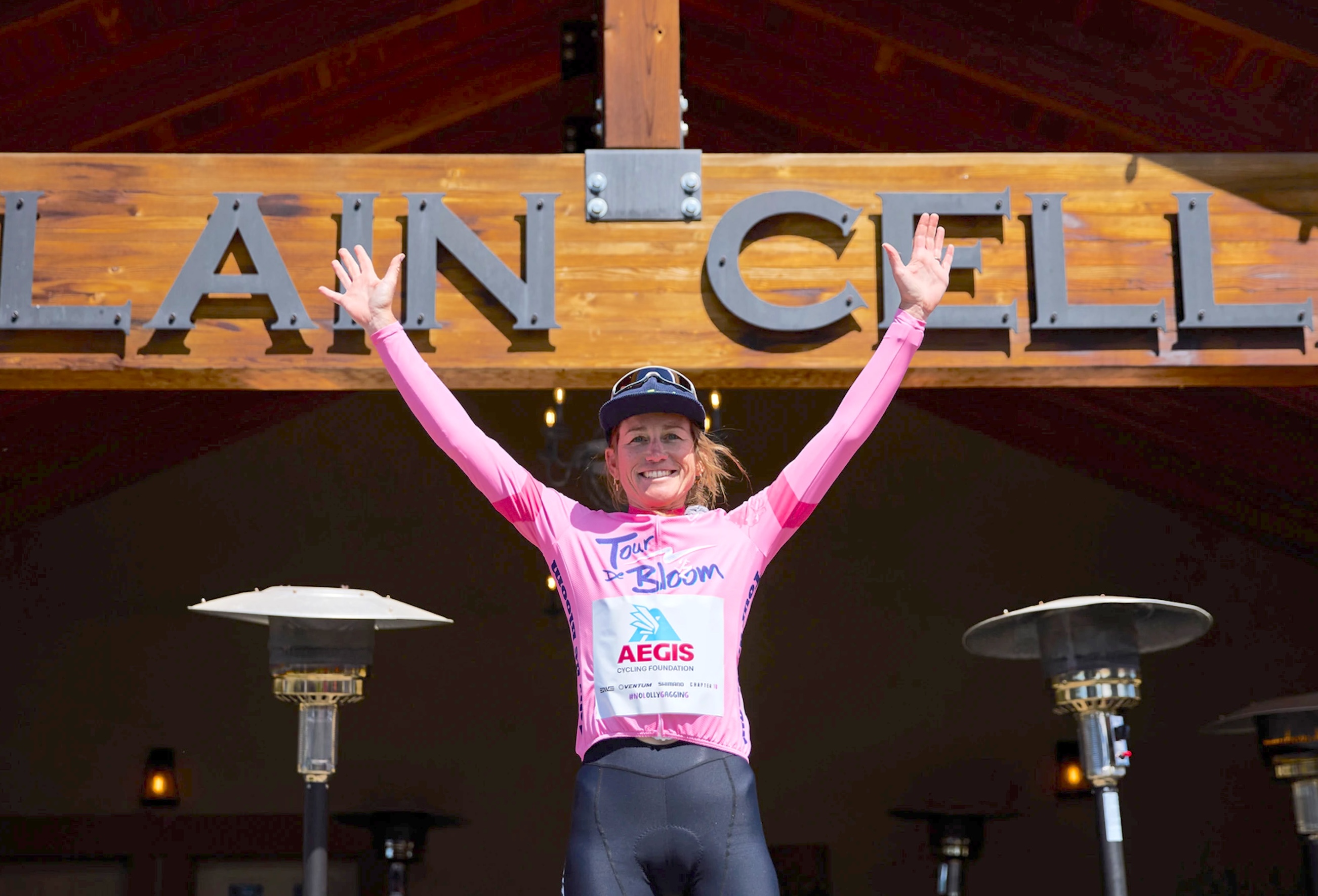Dan Martin predicts more open and aggressive Tour de France
'I've never put pressure on myself - it's just a race'
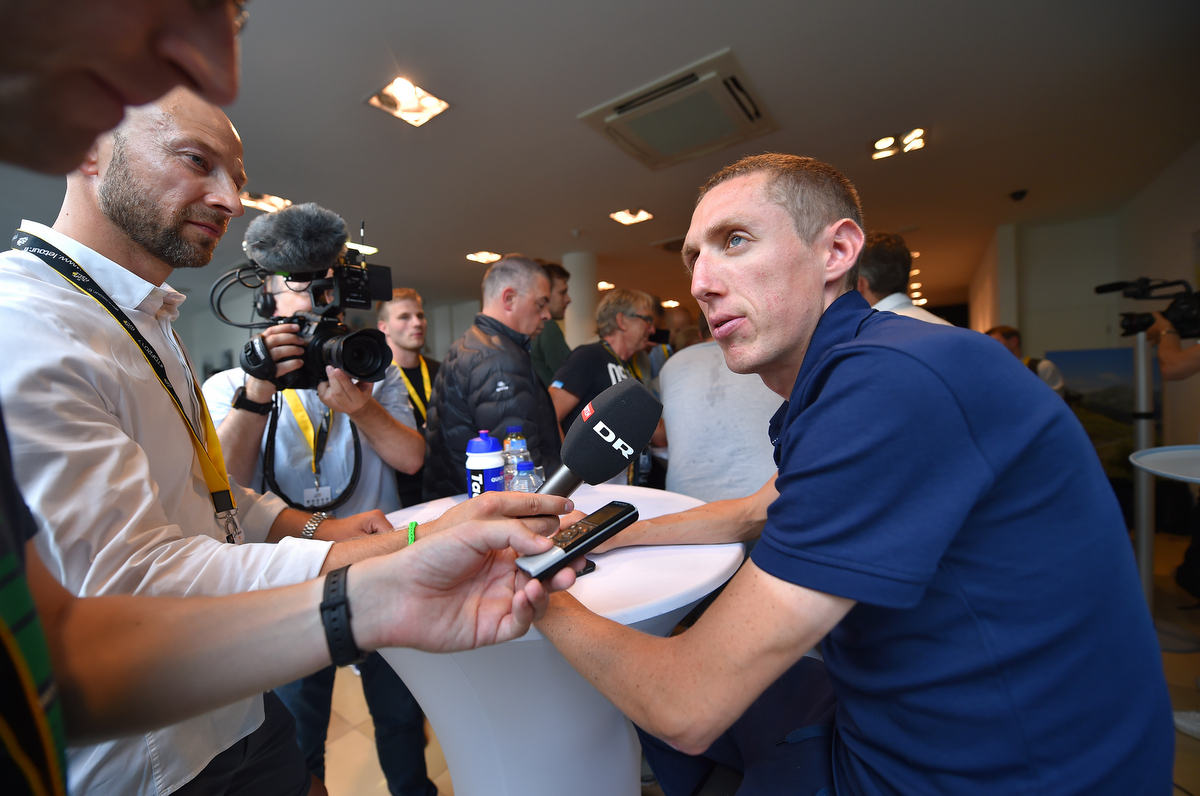
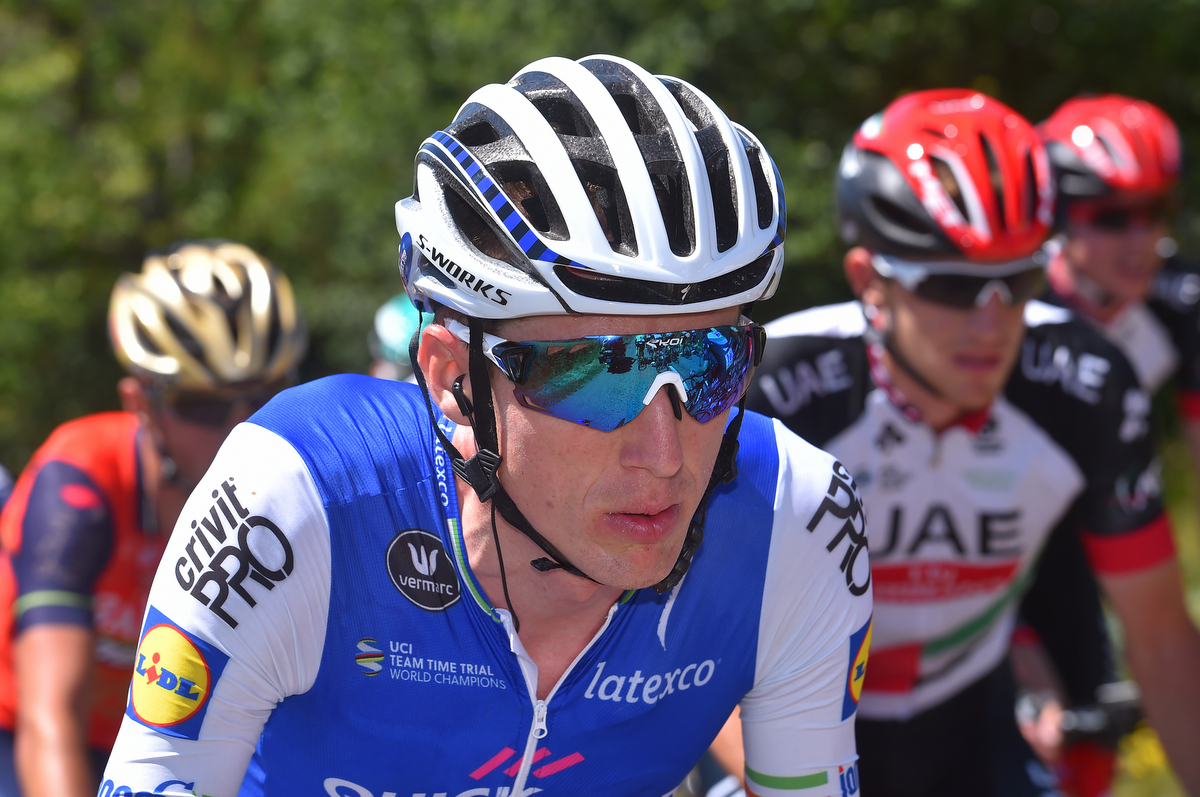
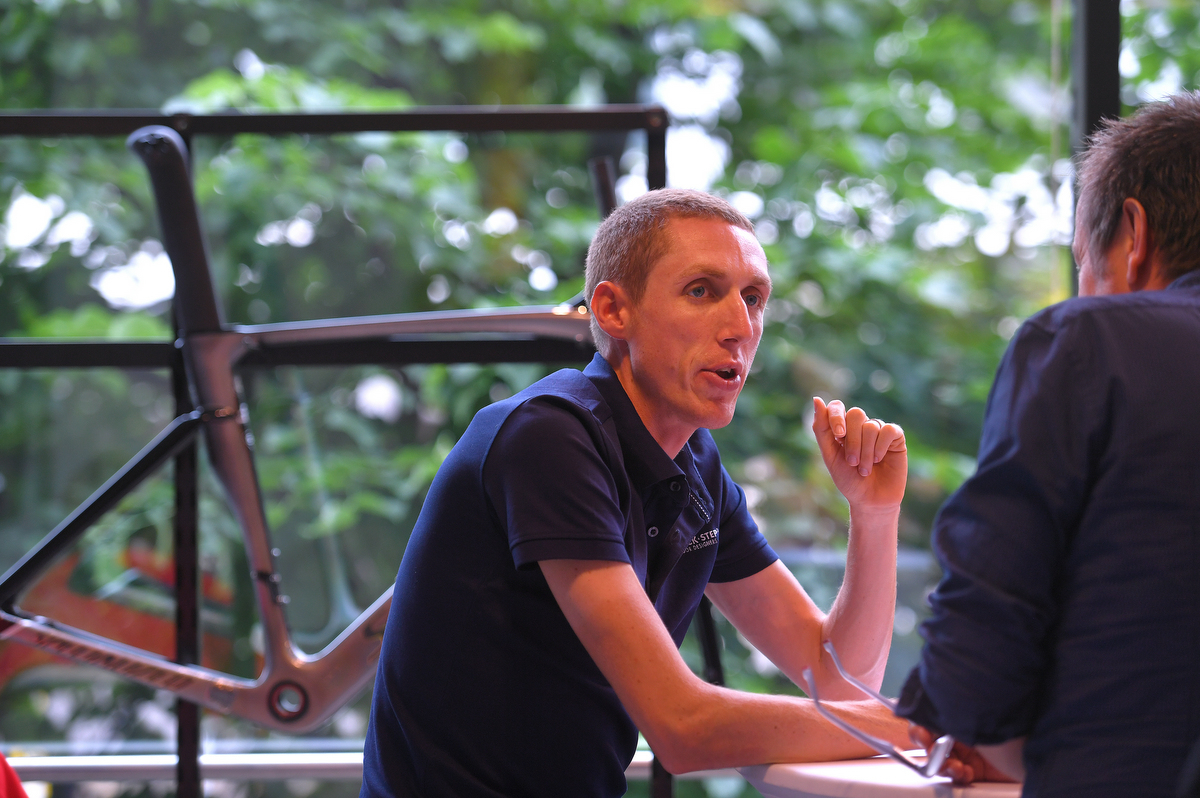
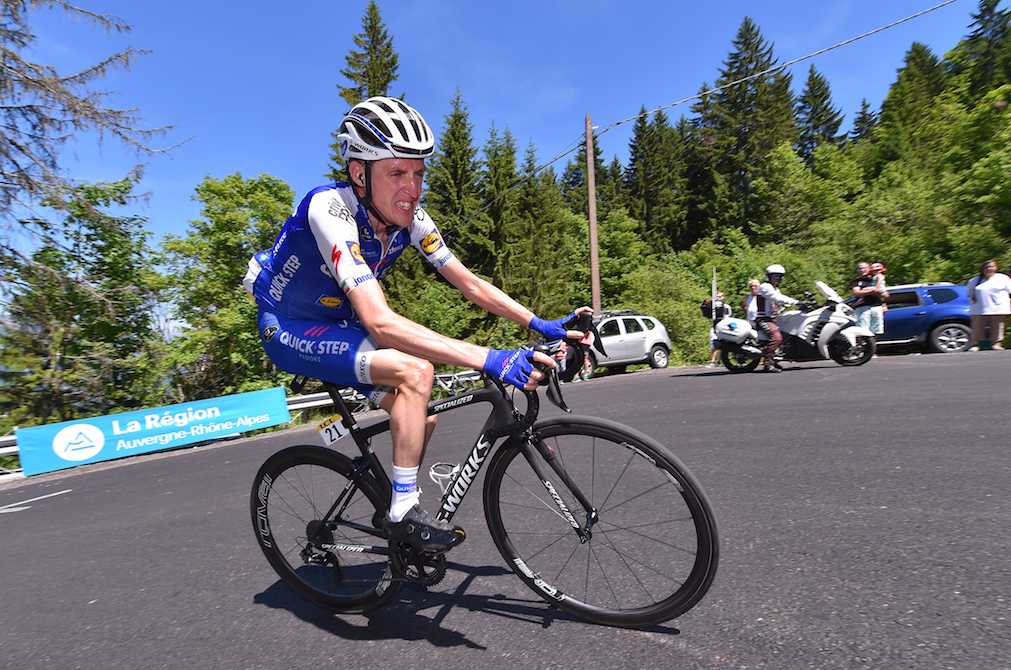
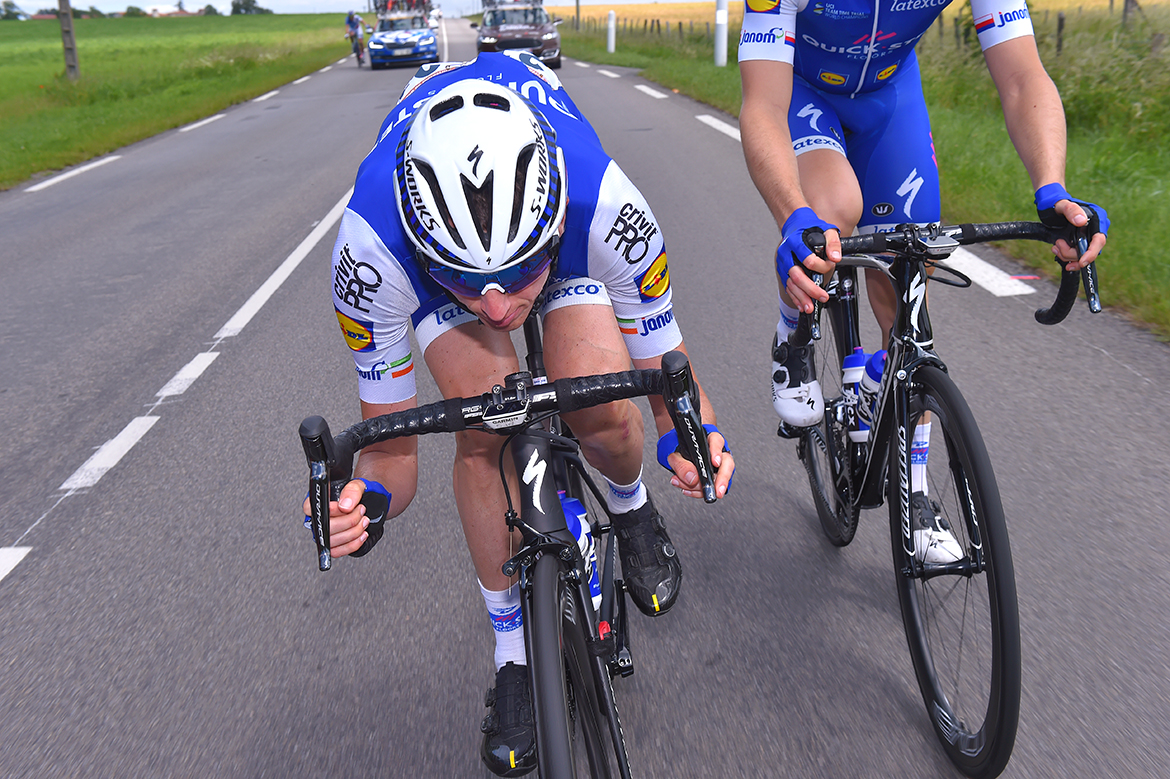
The Tour is the Tour, so the old truism goes, but it is also simply a bike race. In the restless, tense days ahead of the Grand Départ, it can be hyped up to seem so much more important than that, but Dan Martin kept a tight hold on his sense of perspective amid a melee of reporters at Quick-Step's heaving pre-race press event in Düsseldorf on Thursday.
Asked to describe the pressure of leading a team like Quick-Step and seeking to better his ninth place finish of a year ago, Martin politely demurred. "I never feel pressure. Whatever happens, happens, and my team and my family will know that I've given my all," Martin said simply. "I've never put pressure on myself like that, it's just a race."
Martin has never been one to define his seasons by results alone, even if his palmarès is a weighty one, headlined by victories at Liège-Bastogne-Liège and the Tour of Lombardy. The Irishman has been among the most consistent performers in the peloton this year, placing on the podium at Flèche Wallonne, Liège-Bastogne-Liège, Paris-Nice and the recent Critérium du Dauphiné, but he is loath to set himself a specific target ahead of the Tour de France.
"I'll try to finish in the best position possible," Martin said. "My worst finish this year is sixth, so I would like to keep that record intact in Paris, but it's hard to say now. I'll do all I can, but it's the road and the others who'll decide my result."
The emphasis, for now at least, is on the process rather than the end product, but this year's Tour seems particularly well-suited to Martin's punchy characteristics. Time trialling kilometres are limited, the litany of medium mountain stages lends itself to invention, and the set-piece mountain stages feature the kind of steeper gradients on which a climber of Martin's physique ought to thrive.
"I think the steeper climbs are better for me, because you don't need a team as much and it makes for more aggressive racing. When we did Mont du Chat at the Dauphiné, only the GC guys were left in front from the bottom," Martin said. "It's a good route for exciting racing."
Negative racing
Every Tour route sings on the printed page, of course, but the melody of the race itself can often fail to match the sheet music. Despite the early aggression of Martin and others, last year's Tour was muffled by Team Sky's dominance in the high mountains. In theory, this year's parcours makes such blanket control more difficult, but hardly impossible.
The latest race content, interviews, features, reviews and expert buying guides, direct to your inbox!
"Well, I think the problem with the Tour, and especially last year, wasn't so much that Sky were controlling everything, it was that nobody wanted to lose their place on the general classification. The rider in eighth would chase down the ninth placed guy and whatnot," Martin said. "It's very negative racing. It doesn't help when you've got one team that's very strong."
One crucial difference on this year's route is the positioning and the length of the time trials. After Saturday's 14-kilometre opener in Dusseldorf, the aerodynamic bikes will remain in storage until the 22.5-kilometre time trial in Marseille on the final Saturday. Few riders, if any, can afford to build their races around such a meagre diet of time trialling.
"A reason it was closed last year was because Chris [Froome] took time in the time trials and he didn't need to attack," Martin said. "This year there are so few time trial kilometres, and nobody is going to want to gamble on the last time trial to win the Tour, they're going to want to seal it before then. Everybody is going to want to race more aggressively, whereas last year, people just wanted to hold onto what they had."
It remains to be seen if the dramatic last stage of the Dauphiné, which saw an isolated Richie Porte (BMC) lose the overall lead after being attacked from all sides on the Col de la Colombière, will be any sort of a guide for the Tour. The overall contenders might not race with quite the same abandon when the stakes are higher in the white heat of July.
"It's definitely a lot more difficult to have a stage like that on the Tour," Martin said. "It can always happen in cycling but the Tour tends to be a bit more predictable. Hopefully this year will be a bit more open. I think the route lends itself to more open racing. I still seem to be carrying this kind of underdog status, so hopefully I can take advantage of the more open racing and get a better result out of it."
The Tour peloton leaves Germany and traverses Belgium and Luxembourg in its opening days, before reaching the first major rendezvous at La Planche des Belles Filles on stage 5. The first summit finish of the Tour will not prove decisive, and may not even provide firm indications as to the final victor, but its significance should not be overlooked.
"It's a very short, explosive climb so it's difficult to use as a marker for who's going to win the Tour because it's a very different proposition to the longer climbs later in the race," Martin said. "But it's an early opportunity to get momentum and confidence, and that always helps in the Tour."

Barry Ryan was Head of Features at Cyclingnews. He has covered professional cycling since 2010, reporting from the Tour de France, Giro d’Italia and events from Argentina to Japan. His writing has appeared in The Independent, Procycling and Cycling Plus. He is the author of The Ascent: Sean Kelly, Stephen Roche and the Rise of Irish Cycling’s Golden Generation, published by Gill Books.
